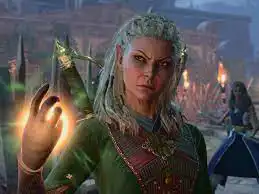Baldur’s Gate 3 envelops players in an intricate narrative where decisions made, especially those regarding the fates of the companions, directly influence the direction and final outcome of their playthrough.
The decisions players face are rarely straightforward, and typically come loaded with positive and negative consequences. These complexities, while being a major allure of the game, have also been sources of frustration for players.
One particular impactful decision revolves around Wyll, a character who has a deeply personal storyline. This decision has led to heated debates among the players due to its ramifications on the narrative.

Many players express their discontentment regarding this pivotal moment in the game, revealing a sense of dissatisfaction in being the ones who decide Wyll's fate.
Players spend a significant chunk of the game attempting to save Wyll’s father, Duke Ravengard. This opportunity finally presents itself towards the later stages of the game in Act 3. However, the choice offered to save Duke comes with its own set of challenges.
Wyll, who is Duke's son, is also a Warlock who's bound to a dark pact with the malevolent entity Mizora. The decision placed on the players is whether Wyll should sacrifice his own soul to save his father.
The deliberation doesn't end there. Even though the choice seems to directly affect Wyll, he isn't given the agency to make the decision. Instead, the players have to bear the burdensome task.
This lack of agency for Wyll and the weight of the choice for players has been a contentious issue, with some expressing resentment towards the narrative design.
According to discussions, it seems players think that making such a personal and life-altering choice for Wyll contradicts the narrative agency offered to other companion characters in the game.
For instance, a player can influence Shadowheart to end or spare the life of the Nightsong, but they can also allow her to decide. This type of narrative agency is seen favorably by players as it contributes to complexity and personal involvement in the game.
However, when it comes to Wyll's choice, players lament the lack of a similar option. The definitive decision-making power given to the players, while stripping away Wyll's agency towards his and his father's fate, has drawn criticism.
In-game, Wyll's lack of decision-making power could be interpreted as a narrative design choice rather than a flaw. One opinion suggests this scene might have been designed with the perspective of Wyll as the origin character rather than a companion character.
The narrative is versatile and offers another course of action to save both Wyll and his father. However, the uncertainty surrounding Wyll's agency in that decision still makes him a subject of contention among players.
Regardless of the constructive criticisms from players, the narrative choices in Baldur’s Gate 3 indeed make the game a rich and multi-layered interactive experience.
An RPG title like Baldur's Gate 3 obliges its players to unfurl its winding and complex narrative through the choices they make. The debate surrounding Wyll's lack of agency reflects how invested players are in the game's storytelling and character development.
For more guides, news, and content about Baldur’s Gate 3, stay locked to our in-depth coverage. Obtain an understanding of one of the deepest and involving RPG experiences of our times as we navigate through the world of Baldur’s Gate 3!